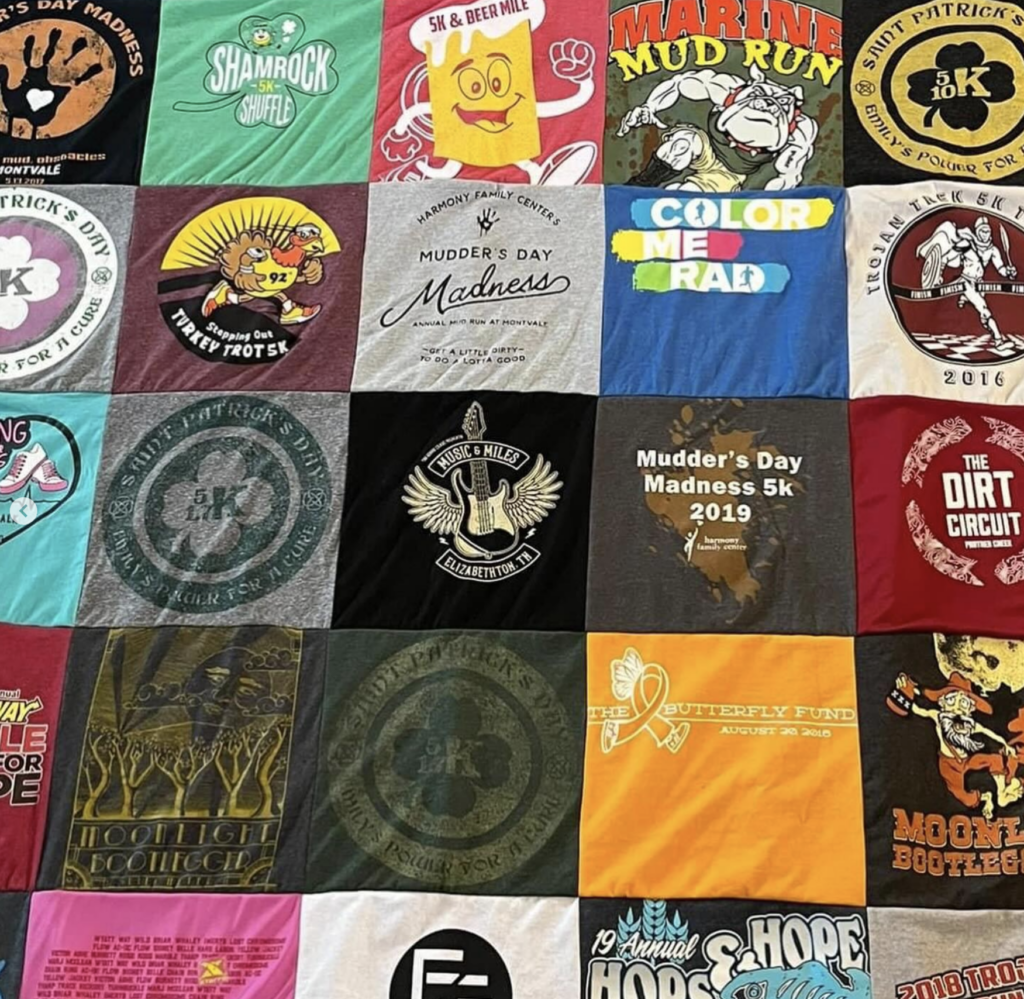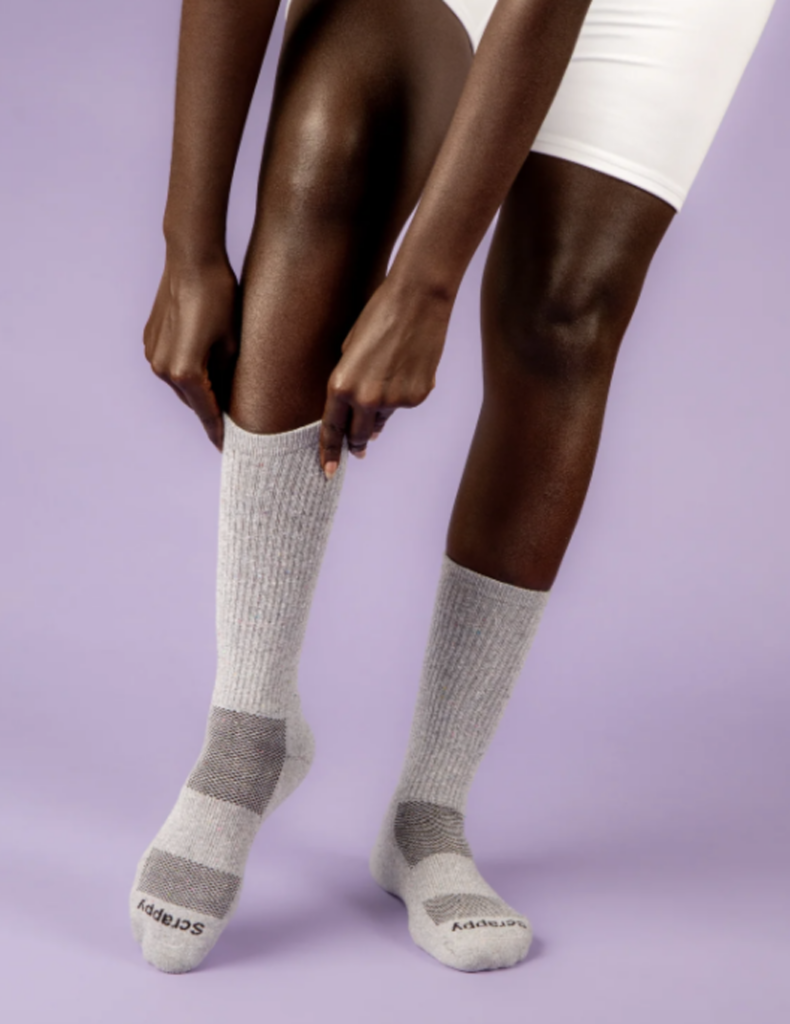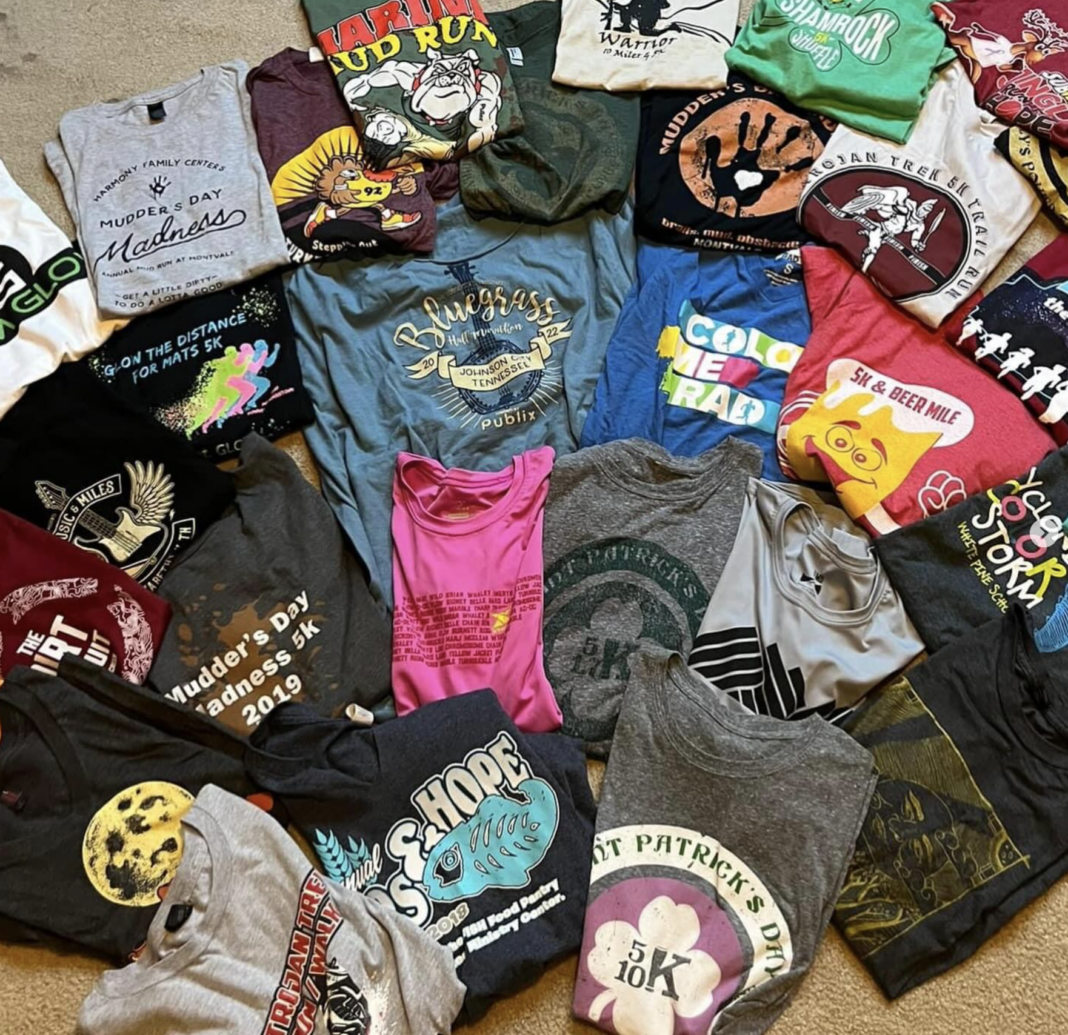Upcycled blankets showcase your memories and keep old shirts out of landfills.
While I am always trying my best to live a clutter-free life, there is one box collecting dust in my closet that I can never seem to confront: my box of old t-shirts. Over the years, I’ve collected a burdensome number of novelty t-shirts from sorority formals, recreational softball leagues, charity 5K races, concerts, and myriad other events I remember fondly. “One day, I’ll make a t-shirt quilt,” I tell myself, even though the last time I touched a sewing machine was in 6th-grade home-ec class. Another year passes, and another layer of dust settles onto the box.
Enter: Project Repat. With Project Repat, you can give your old shirts a new lease on life — send them your shirts and they’ll return as a cozy, upcycled throw blanket. Nathan Rothstein, co-founder of Project Repat echoes the t-shirt hoarding dilemma in which I, like many others, have found myself: “Ninety-nine percent of t-shirts have no resale value — the most value they have is the memories associated with them — so a lot of times people store these shirts until they just don’t have space anymore. Then, they give them to Goodwill, and in most cases Goodwill can’t resell them either. So, they get shipped overseas to secondary markets. There’s a lot of carbon impact to all of that shipping. The best thing to do with your old t-shirts is to upcycle them — create jobs in the US and keep more shirts out of landfills all over the world.”

Rothstein and his partner, Ross Lohr, started Project Repat in Boston in 2012 when they realized how many of our pre-loved novelty t-shirts were being shipped overseas. When Lohr was doing education development work in Nairobi, Kenya, he came across a Kenyan man wearing a shirt that read “I Danced My Ass Off at Josh’s Bar Mitzvah.” Lohr worked with Kenyan artists to find ways to upcycle and repatriate these shirts in the form of bags, scarves, and re-fabricated t-shirts.
Back in the states, Lohr and Rothstein set up shop at the South End Open Market and other farmers markets around Boston and sold tote bags made from upcycled t-shirts. While there wasn’t much interest in these totes, folks kept inquiring about the possibility of upcycling their own shirts into quilts.
“It’s as American as apple pie to get a t-shirt for an event,” Rothstein says. “If you’ve left your house over the last twenty years, you’ll get a free shirt. And, now more people are talking about thrifting and reselling — what happens to fashion when we part with it — and I think custom t-shirts can get lost in that conversation.”
Lohr and Rothstein began working with Opportunity Threads in Morganton, North Carolina, a worker-owned cut-and-sew company where all employees are able to accrue equity for the years they work with the company. They began producing sturdy, practical blankets with upcycled shirts, forgoing the batting and interface we expect from museum-quality quilts. This allowed Project Repat to offer this upcycling service at an approachable price point. “It honestly helped us that we didn’t have any textile experience,” Rothstein says. “We didn’t look at this and say ‘This is what a quilt is traditionally and it has to be done this way.’”
Currently, Project Repat produces between 1,500 and 2,000 quilts on a weekly basis, processing 20,000 to 30,000 shirts per week. Since they began making upcycled blankets from t-shirts, Project Repat has prevented more than 25 million shirts from ending up in a landfill or shipped overseas. “But it’s just a drop in the bucket,” Rothstein says. “The amount of shirts that are printed in the US is around a few billion each year.”

As the demand for their upcycled blankets has continued to increase, so has the amount of fabric scraps that come as a by-product of blanket production. “We’ve been spending years trying to find ways to responsibly recycle our scraps,” Rothstein says. “This year, we’ve worked with some of our partners in North Carolina and we’ve been able to break down our scraps back into yarn that can be spun into socks. So, we’re now making an almost 100 percent recycled sock — it’s really one of the most sustainable socks on the planet.”
As the holidays approach, I’m putting a Project Repat blanket at the top of my wishlist. I’ll also be gifting one to my music-loving partner who is encumbered by t-shirts collected from a lifetime of concert-going. With one upcycled blanket I’m also giving the gift of decluttered closet space and planet-friendly preserved memories.
Bluedot readers can get 30% off a Project Repat Blanket with code BLUEDOT



